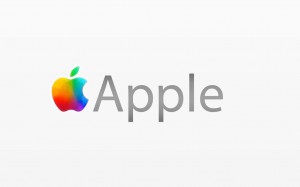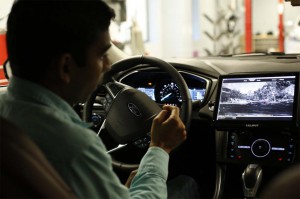It has been one of the worst-kept secrets in Silicon Valley – but while Apple has been widely reported to be working on a high-tech automobile program, dubbed Project Titan, new indications are that the iPhone-maker may be backing off from that effort.
The new reports suggest that Apple has fired “dozen of employees” involved in the automotive project, a sharp reversal from the aggressive hiring program that had been in places for the past year. Apple had hired a number of industry veterans from conventional automakers, as well as high-tech auto firm Tesla Motors.
But rather than abandon Project Titan entirely, reports in The New York Times and other media sources indicate Apple is now looking to provide high-tech, autonomous – or even driverless – technology to existing automakers, rather than trying to build cars on its own. Such an effort could put it directly in competition with another tech giant, Google.
(Tesla upgrades controversial Autopilot system. Click Here for that breaking story.)
Few companies have maintained more of a culture of secrecy than Apple. But it has been difficult for the tech firm to hide its ambitious foray into the automotive world. Elon Musk, the CEO of Tesla, has openly discussed Apple’s hiring binge. And officials operating an automotive proving grounds at an old Navy base near San Francisco revealed that Apple had approached them about using the facility.
The tech firm founded by Silicon Valley legend Steve Jobs has never confirmed Project Titan, nor is it discussing the latest reports. But a variety of sources have indicated the shift that apparently began when one of Job’s top lieutenants, Bob Mansfield, recently returned to Apple. Citing three unnamed employees, the Times says the tech giant has fired “dozens of employees,” and shifted its focus.
It now appears more likely to seek other automakers who would like to license its autonomous driving technology, rather than actually produce automobiles under the Apple badge. That move is being hailed by some investment analysts who worried that going into the car business would be a financial sinkhole for the well-funded Apple.
That’s reflected in the far lower stock multiples Wall Street investors reward most car companies – with the notable exception of Tesla – compared to Silicon Valley powerhouses like Apple and Google.
(Delphi, Mobileye announced autonomous vehicle partnership. Click Here for the story.)
If Apple actually is shifting away from manufacturing its own automobiles it would be following a similar path to that of Google. That tech firm has been considered one of the leaders in the development of autonomous systems, having logged millions of miles testing a variety of prototype self-driving vehicles. While Google also had considered the possibility of building cars, it decided to go the partnering route when former Hyundai Motor America boss John Krafcik was brought onboard two years ago.
Krafcik says Google is talking with “multiple” potential partners who might be willing to license its automotive technology. That includes Fiat Chrysler Automobiles. The two companies announced a deal earlier this year that will see Google modify 100 Chrysler Pacifica plug-in hybrid minivans to use its self-driving system.
While those prototypes will require a trained “operator” to sit behind the wheel, ready to take control in an emergency, Google has said its ultimate goal is to create fully driverless vehicles that won’t even have steering wheels or pedals. And it’s not alone. That is the direction Apple may be taking, according to the new reports.
Ford Motor Co. also has shifted onto that path. “We don’t think the path to true autonomy is through a step-by-step, incremental process,” the automaker’s Chief Technology Officer Raj Nair told TheDetroitBureau.com last month. The second-largest Detroit maker now plans to go straight to driverless systems and is targeting production by 2021, according to Nair.
(For more on Ford’s driverless car plans, Click Here.)
That announcement came as a surprise to many industry observers, as conventional wisdom had suggested that hands-free systems would come first, with driverless technology not likely to follow for anywhere from another five to 15 years.
Ford said it will be targeting ride-sharing fleets with its driverless system, and that fits the plans of companies like Uber. The taxi alternative is working on its own technology, CEO Travis Kalanick predicting that if Uber could eliminate its drivers it would be able to provide rides so cheaply it would be more cost-effective than owning a personal vehicle.
Significantly, Ford announced on Friday that it had acquired San Francisco-based shuttle service Chariot and will expand it to five other cities around the world over the next 18 months.
A recent study by the Boston Consulting Group forecast that the market for various levels of autonomous vehicles will hit $42 billion by 2025, and climb to $77 billion by 2035.



